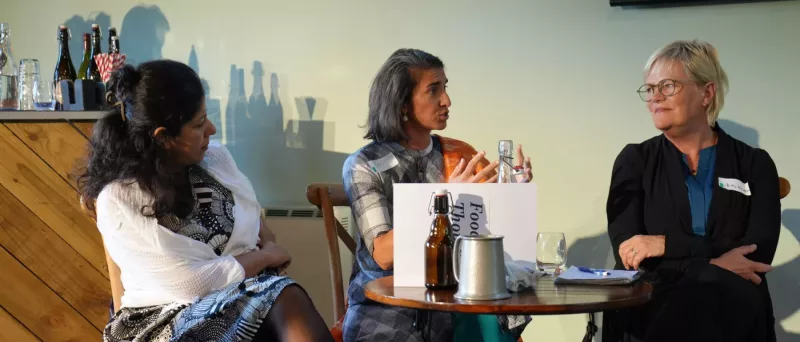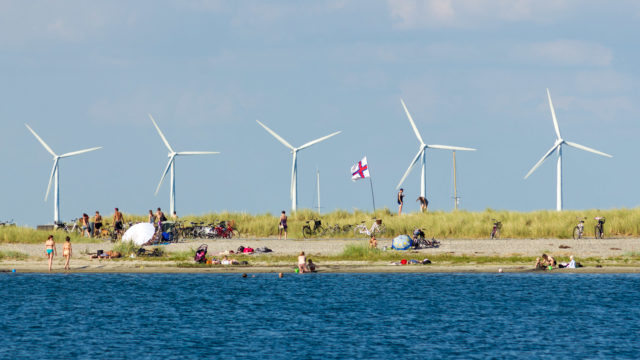Countering green backlash: a GEC perspective
How can climate campaigners both clearly communicate the benefits of transition, and tackle emerging counternarratives from the right?

All around the world, climate policies have become more hotly contested, as attempts to roll back and undermine support for green initiatives have been increasingly funded and coordinated.
What was once broadly accepted—ambitious net‐zero targets, massive investment in clean energy, and policies to protect biodiversity—is now experiencing pushback in many countries, in part due to our failure to win and maintain prolonged support for the transition. This phenomenon, funded by fossil fuel interests, often called green backlash or “greenlash”, poses a serious risk to climate action, sustainable development, and equity.
At the Green Economy Coalition (GEC), we see this backlash as a serious threat—not just to climate action, but to sustainable development, equity, and the broader vision of a just transition. As a network of organisations committed to building fairer, greener economies, we believe it’s essential to confront greenlash head-on.
Lashing out
So, what exactly is greenlash? It’s the growing political, social, and economic resistance to environmental policies. Opponents argue that green policies are too expensive, that they disproportionately benefit urban or wealthy elites, and that the science and solutions are too complex to trust. They exploit the rise of AI and declining trust in institutions to spread misinformation, framing environmentalism as a niche concern rather than a shared public good.
This matters deeply to the green economy. If backlash slows or reverses progress, it doesn’t just delay emissions reductions—it also jeopardises opportunities for decent work, healthier communities, nature conservation, and poverty alleviation. The stakes are high.
At a recent event, “Countering green backlash: rethinking the UK opportunity landscape” hosted by the Stockholm Environment Institute (SEI) in the UK, stakeholders gathered to explore how we can counter this trend. The discussions offered valuable insights into how we can reframe the conversation and rebuild support for the green transition.
One key takeaway is the importance of speaking in relatable terms.
People connect more with tangible benefits—clean water, lower energy
bills, better public transport, and local jobs—than with abstract
targets like “net zero.” Positive framing matters too. Talking about a
“thriving local economy” or a “healthier environment” resonates more
than technical jargon.
Talking plain old common sense
We also need to rethink how we communicate. Avoiding alienating language and using stories that reflect local realities can help make the green transition feel more inclusive. Highlighting real-world successes—especially from small businesses and communities—can show that green growth is not only possible but already happening.
Fairness must be at the heart of policy design. That means ensuring that the costs and benefits of the transition are shared equitably, and that communities are involved in shaping the policies that affect them. Supporting local enterprises and small businesses is crucial to making the green economy accessible to all.
Trust is another cornerstone. Transparency in policymaking, credible messengers from within communities, and proactive efforts to counter misinformation are all essential. We must also mobilise a wide range of actors—from businesses and civil society to local governments—to build a broad base of support.
And we can’t wait for perfection. Early wins—like home energy
upgrades, green infrastructure, or clean transport projects—can
demonstrate the benefits of the transition and build momentum.
Conclusion
As a coalition, GEC has a unique role to play. We can facilitate the sharing of best practices, support communities in engaging with green policy debates, and partner with researchers to track public opinion and the effectiveness of different messages. We can advocate for policies that embed justice and local benefit from the outset, and coordinate with others to tackle different aspects of the backlash.
Greenlash is not just a risk—it is a mirror pointing to where green economy policy has failed to be inclusive, clear or compelling. For the green economy transition to succeed and endure, we must listen more closely to people’s lived experiences; craft policies that are fair, visible and beneficial; and tell positive stories grounded in real lives and places. That way, the promise of a green economy can become, not a source of division, but a shared vision of a thriving future.
- Jean McLean


